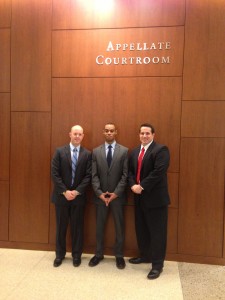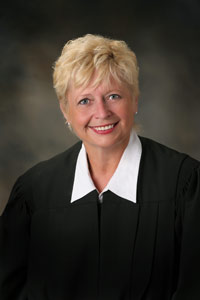Marquette Moot Court Team Success at the National Entertainment Law Competition
Our moot court team distinguished itself at the National Entertainment Law Moot Court Competition this weekend in Malibu, California. The team advanced to the quarterfinals (top 8) of twenty-three teams. The team also won third place Respondent brief. Please congratulate team members Sarah Haas and Samantha Schmid, advised by Professor Paul Anderson. Thank you also to the team coaches, Attorneys Steve Gruber, Nick Hermann, and Dirk Vanover, and other practitioners who helped the team practice.


